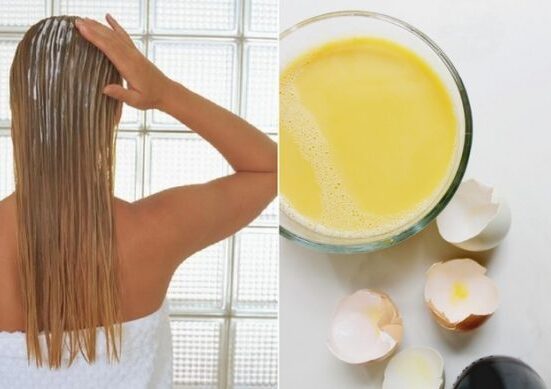Curd, also known as yogurt in many parts of the world, is a dairy product made by fermenting milk with beneficial bacteria. It has been a part of traditional diets for centuries, revered not only for its creamy texture and tangy flavor but also for its numerous health benefits. Rich in protein, calcium, probiotics, and essential vitamins, curd plays a vital role in promoting digestive health, improving skin complexion, and strengthening hair. Whether consumed on its own, mixed with fruits, or added to savory dishes, curd is a versatile and nutritious food that can enhance your overall well-being.
Curd for Hair Care: Nourish and Revitalize Your Hair Naturally
Curd is a natural and effective solution for promoting healthy hair. Packed with proteins, lactic acid, and vitamins, it can provide deep nourishment to your hair and scalp, making it a popular choice in many hair care routines. Here’s how curd benefits your hair:
- Stimulates Hair Growth: The proteins in curd help strengthen the hair follicles, which encourages hair growth. It provides essential nutrients that can revitalize and repair damaged hair, making it thicker and healthier.
- Fights Dandruff: Curd has antifungal properties that can help combat dandruff and other scalp conditions. Applying curd to your scalp helps to soothe irritation, reduce flakiness, and restore balance to the scalp.
- Adds Shine and Softness: The lactic acid in curd works as a gentle cleanser, removing impurities and dead skin cells from the scalp, which can make hair smoother and shinier. Regular use of curd can enhance the natural texture of your hair, leaving it soft and manageable.
- Moisturizes Dry Hair: Curd acts as a natural moisturizer, helping to hydrate dry, brittle hair. It provides deep conditioning that replenishes moisture and keeps your hair soft and smooth, preventing it from becoming frizzy.
- Prevents Hair Fall: The rich protein content in curd helps strengthen the hair shaft, preventing excessive hair fall and breakage. It can also unclog hair follicles, which promotes healthier, stronger hair growth.
How to Use Curd for Hair Care
- Curd Hair Mask: Simply apply plain, unsweetened curd to your scalp and hair, massaging gently. Leave it on for 20–30 minutes before washing it off with lukewarm water. This helps nourish the scalp and strengthens the hair from root to tip.
- Curd and Honey Mask: Mix curd with honey and apply to your scalp for extra hydration. Honey locks in moisture and helps prevent hair from becoming dry and frizzy.
- Curd and Lemon Mask: If you have an oily scalp, mix curd with a few drops of lemon juice. This combination helps balance the scalp’s oil production and gives your hair a fresh, clean feel.
Curd is a versatile, affordable, and natural ingredient for promoting healthy hair, making it an excellent choice for anyone looking to enhance their hair care routine.
Is curd effective for reducing belly fat?
Yes, curd can help in reducing belly fat. It supports digestion, regulates metabolism, and is low in calories but high in protein. The probiotic properties of curd make it a great choice for weight management and overall health. You can easily incorporate it into meals for a nutritious and satisfying option.
When is the best time to consume curd?
Curd is best consumed in the evening, either as part of dinner or as a post-meal delight. This helps maintain a healthy digestive balance and supports better absorption of nutrients.
Which is better: milk or curd?
While both milk and curd are beneficial, curd is healthier for digestion due to its probiotic content. However, for strengthening bones, milk is a superior source of protein and calcium.
Is curd good for skin?
Absolutely! Curd is packed with beneficial bacteria that support gut and skin health. It also contains protein, calcium, and vitamin D, all of which improve skin complexion, making it glow naturally.
Can curd help with gas?
Yes, curd is an excellent remedy for gas and bloating. Its probiotics promote healthy digestion, while potassium helps balance sodium levels in the body, reducing bloating and discomfort.
Is curd beneficial for fatty liver?
Low-fat curd can be a great addition to a fatty liver-friendly diet. It contains proteins and probiotics that aid digestion and improve gut health. However, moderation is important to avoid excess calorie intake.
What vitamins does curd contain?
Curd is a nutrient-rich food, providing essential vitamins such as calcium, vitamin B2, vitamin B12, potassium, and magnesium. These nutrients support overall health, including strong bones and improved digestion.
Can curd and milk be mixed?
Although milk and curd come from the same family, it’s best not to mix them. Consuming them together may cause digestive discomfort since both are rich in proteins that can be heavy on the stomach.
Is it okay to eat curd at night?
It’s fine to consume curd at night, but if you have digestive issues, it may cause discomfort due to its richness in fat and protein. It’s best to consume curd earlier in the day when your metabolism is more active.
Is curd good for hair?
Yes, curd nourishes the scalp and hair follicles. Rich in proteins and lactic acid, it encourages hair growth and helps reduce hair fall. It also removes dead skin cells, unclogs hair follicles, and maintains overall hair health.
What is the ideal time to use curd for health benefits?
The best time to consume curd is during the day, preferably in the morning or afternoon, when your digestive system is most efficient. It can be enjoyed on its own or added to meals like rice or vegetables.
Which type of curd is the best for health?
Homemade curd is the healthiest choice, especially when made from cow’s milk. It has a higher concentration of beneficial bacteria and is easier to digest than store-bought versions. The fermentation process at home enhances the health benefits of curd.
How to consume curd according to Ayurveda?
According to Ayurveda, curd is especially beneficial for individuals with Vata dosha due to its rich and sour nature. It should be consumed during the daytime, particularly at lunch, when digestive strength is at its peak.
Is it safe to eat curd with eggs?
Combining curd with eggs is not recommended in Ayurveda or conventional nutrition. Both foods are high in protein, and consuming them together can make digestion difficult, leading to discomfort or indigestion.
Conclusion:
Curd is not only a delicious addition to your diet but also an incredibly versatile superfood that supports skin, hair, digestive health, and more. By incorporating curd into your routine, you can enjoy its numerous benefits and promote overall wellness naturally!








Leave feedback about this